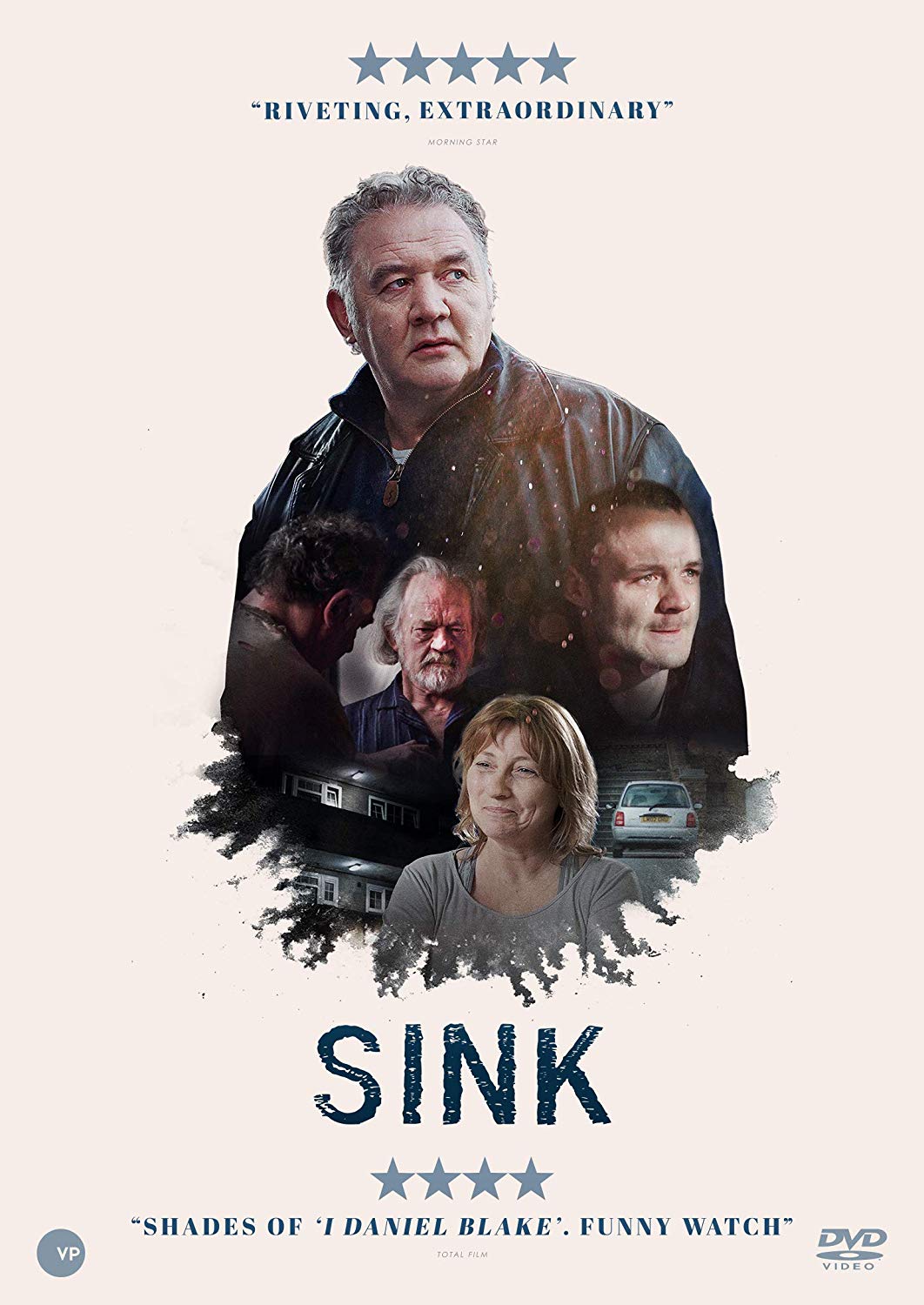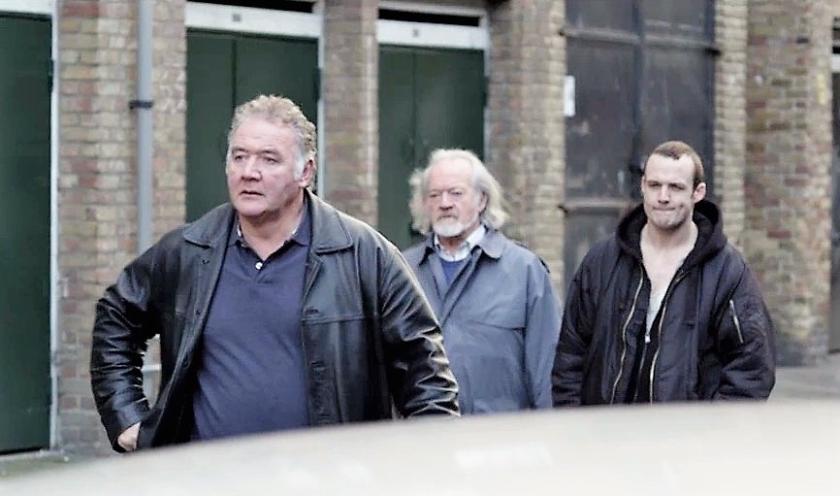This debut feature from Mark Gillis is a film of real anger and considerable tenderness. The anger is both at the general situation it depicts, and reveals itself in the particular when his protagonist Micky Mason (Martin Herdman) repeatedly has to restrain himself from acts of violence – a punch thrown, a brick through a windscreen – that would tip him over the edge. For a crucial few seconds he manages to hold himself back, but we sense the desperate effort involved.
Sink is an East London film, its location defined by close proximity to the towers of the City, their insistent presence recalling, in this post-2008 financial crash world, how such crises impact on the everyday lives of those who live in their shadows. Herdman’s bluff fiftysomething Micky had a proper working life, two decades as a tool fitter, until that job went; now he's doing his best on zero hours opportunities.
 When things go wrong, the lack of security leaves him floundering. “It’s rarely one big thing that sends people over, it’s the constant drip of seemingly innocuous events,” Gillis, better known to date as an actor, has described his subject, and the confluence of events here is confounding. His father Sam (Ian Moss) has dementia, but has to be moved from his care home when it’s bought out, and the two men can hardly survive in Micky’s one-room flat in a council block. Son Jason (Joshua Herdman, in a real-life father-son connection) has never really been in work; he’s recently kicked a drugs habit, but that’s looking precarious, giving rise to some of the strongest scenes as the two men tackle that subject.
When things go wrong, the lack of security leaves him floundering. “It’s rarely one big thing that sends people over, it’s the constant drip of seemingly innocuous events,” Gillis, better known to date as an actor, has described his subject, and the confluence of events here is confounding. His father Sam (Ian Moss) has dementia, but has to be moved from his care home when it’s bought out, and the two men can hardly survive in Micky’s one-room flat in a council block. Son Jason (Joshua Herdman, in a real-life father-son connection) has never really been in work; he’s recently kicked a drugs habit, but that’s looking precarious, giving rise to some of the strongest scenes as the two men tackle that subject.
In other ways, however, the remnants of a once strong community remain. Micky’s wife is dead, and he’s the recipient of plenty of almost maternal support from some of the women around him, most of all a neighbour on the block, though a closer relationship with an old friend comes to nothing (making love in a tiny flat with an unstable dad next door doesn’t offer much in the way of romance). The world that Gillis portrays has earned comparison with that of Ken Loach, particularly I, Daniel Blake, but there’s one key difference: the support that Micky gets from his manager at the Job Centre is heartfelt, her belief in him complete. Gillis is as much concerned with the cruelty of fate as that of society (though plenty comes from that source, too). The starkest moment comes when Micky seems to have found the ideal new job, a place where values, as well as his skills, should to be respected, only for it to be pulled away in the cruellest circumstances, the inflexibility of the rules to blame. Herdman’s shocked grief is agonisingly speechless.
Gillis speaks thoughtfully about his determination to tell everyday stories
For all that pain, there’s humour here, too, both on an everyday level (tinged occasionally with soap opera elements) and of the wider observational kind. It's an environment that has passed through radical changes, as old-style East London has adapted to new circumstances. An early accident of fate has Micky brought in by the enforcers of a local drug boss, only to discover that he’s an old friend from school days: Paul (played by Gillis himself) now looks like a slick businessman, but used to train in the boxing gym that Sam, Micky’s dad, had once run, a hark-back to the kind of community that had once kept such societies close. Their paths have certainly diverged: Micky, the decent man now struggling to keep his dignity despite what life throws at him, set against the old pal who’s found a new place for himself in this new world, made respectable by money about which it’s best not to ask too many questions.
Gillis catches the gap between these worlds in one symbol – possibly too easy, but effective nonetheless – as Paul offers his old friend, who’s clearly more used to old-style caff grub, a cappuccino from his smart new Italian machine. “Once you’ve tried it, you can’t go back,” he predicts, that phrase eerily prefiguring the film’s final reel, which sees Paul offering more than coffee, and Micky struggling to resist though his conscience tells him it’s not right.
The only extra here is a short Curzon Soho Q&A with Gillis, Herdman and Mark Rylance, who was one of the executive producers (the late Alan Rickman was another). Gillis speaks thoughtfully about his determination to tell everyday stories, about his interest in following changing attitudes to work over three generations. About his choice of music, too, traditional folk songs adapted and performed by Oliver Hoare & the Late Great. The refrain to one, from a Napoleonic-era original, “Rigs of the Time”, rings true for the anger that Sink evokes so well: “Honesty's all out of fashion/These are the rigs of the time.”
Watch the trailer for Sink















Add comment